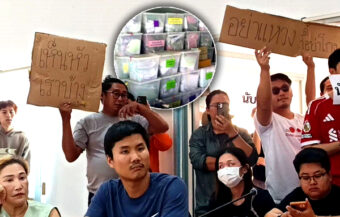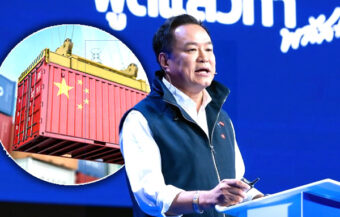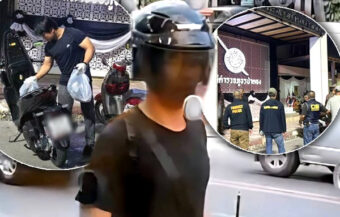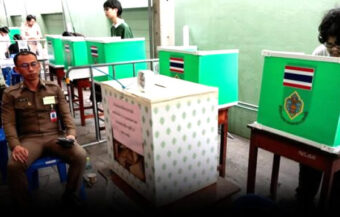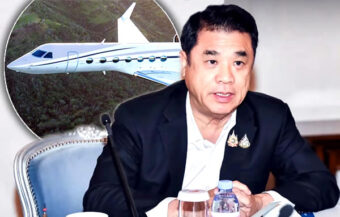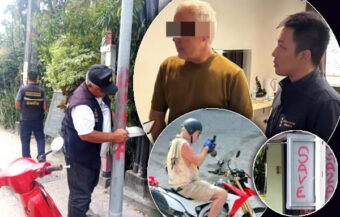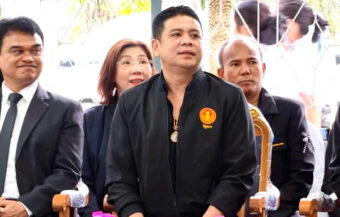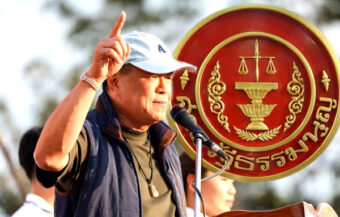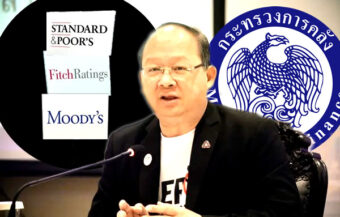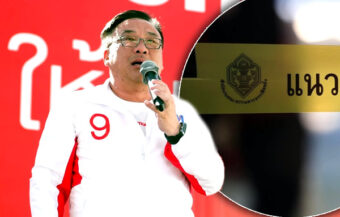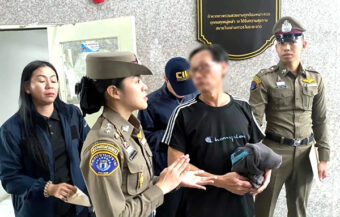The Attorney-General will not appeal Thaksin Shinawatra’s lèse-majesté acquittal, handing him a major legal win weeks into prison, while claims of outside work duties caused controversy and corrections confirmed he remains ineligible under prison rules.
The Attorney-General’s Office on Friday refused to appeal Thaksin Shinawatra’s acquittal on lèse-majesté and cybercrime charges—handing him a major legal win just weeks into his prison term. Hours later, corrections officials shot down claims he’d be put in charge of drain-cleaning duties, dismissing comments by his daughter, Paetongtarn, as premature. With his short time served and ‘medium-level’ inmate status, Thaksin remains ineligible for any special treatment—for now.
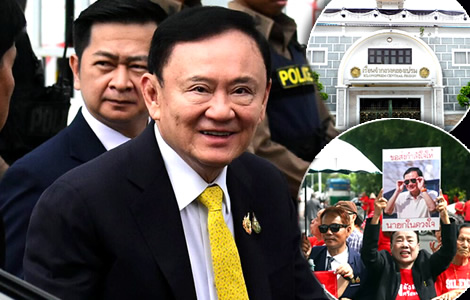
Former Prime Minister Thaksin Shinawatra received a major legal boost on Friday, after a decisive ruling by prosecutors. A high-level panel at the Office of the Attorney-General (OAG) voted not to appeal his recent acquittal in a high-profile lèse-majesté case. The vote, which passed by 8–2, marked a significant victory for Thaksin just weeks into his prison sentence.
The case, dating back to 2015, accused Thaksin of defaming the monarchy under Section 112 of the Criminal Code. It also alleged violations of the Computer Crimes Act. At the time, Thaksin gave a controversial interview to a South Korean newspaper that was also later broadcast. Prosecutors claimed the comments crossed a legal line.
However, on August 22, 2025, the Criminal Court rejected that argument. The court ruled that Thaksin’s remarks did not target the monarchy. Instead, the court found his criticism was directed at political opponents—specifically Mr. Suthep Thaugsuban, senior military officers and members of the Privy Council.
Judges find Thaksin criticised political opponents and coup leaders rather than targeting the monarchy directly
Importantly, the judges ruled that listeners of the interview understood Thaksin to be criticising the 2014 coup—not the King. Therefore, the evidence fell short of proving criminal intent or defamation of the monarchy. Consequently, the case was thrown out by the lower court.
Following standard protocol, the Attorney-General’s Office reviewed the court’s decision. The review was led by Deputy Attorney-General Itthiphon Kaewthip, who chairs the OAG’s Section 112 Review Committee. Notably, Mr. Itthiphon is also set to become Thailand’s next Attorney-General on October 1.
After extensive deliberation, the committee voted overwhelmingly not to appeal the ruling. Their recommendation was passed to current Attorney-General Pairat Pornsomboonsiri, who now has until October 1 to make a final decision. If he agrees with the panel, the matter will be closed.
However, this is not the final hurdle. The National Anti-Corruption Commission (NACC) retains the authority to revive the case. The OAG confirmed that the NACC must issue its own ruling before October 1. If it also declines to act, the court’s decision will stand, and the case will officially end.
NACC holds the final decision on Thaksin case and must act before October 1, or the matter ends there
Nevertheless, if the NACC disagrees, it could appeal the case independently. That would push the matter to the Appeals Court, where it would be reconsidered.
Thaksin’s legal team remains confident. According to them, the acquittal was based not only on the law, but also on facts presented by witnesses. One lawyer, speaking anonymously, said the case “collapsed under scrutiny.” The defence insists that Thaksin’s intent was political—not personal or royal.
The timing of the legal victory is also notable. Thaksin is just weeks into a one-year sentence handed down in previous cases. He began serving time earlier this month at Bangkok’s Khlong Prem Central Prison, one of the country’s most notorious prisons.
The Supreme Court sentenced him on September 9 after his unexpected return following a flight to Dubai just the day before. In August 2023, the ex-Premier had returned from 15 years in self-imposed exile. He was sent to prison for eight years, but a royal pardon reduced this to one year.
He later served his sentence at the Police General Hospital. On September 9, the court ruled Thaksin would have to serve his sentence again without preferential treatment. However, his return on Monday, September 8, 2025, shocked many observers and triggered a wave of speculation about his political ambitions.
Thaksin starts prison sentence after surprise return from long exile, while legal team remains confident
That day, crowds of Red Shirt supporters gathered outside the court, chanting and waving banners in support of the former leader. Some held signs demanding justice. Others called for national reconciliation.
However, Thaksin’s latest incarceration has not been without complications. Since entering prison, he has already been hospitalised twice for health complaints. On Friday, September 19, he was transferred to a medical facility with neck pain. He was sent again the following Monday for further treatment. Nonetheless, he was quickly returned to prison.
Meanwhile, his family has stayed close. On Thursday, his youngest daughter, Paetongtarn Shinawatra, visited him for the third time. She later spoke to reporters and a crowd of Red Shirt supporters gathered outside the facility.
Paetongtarn, who briefly served as prime minister herself, told media that her father’s condition was improving. She added that authorities were “considering” him for an outside work assignment. Specifically, she said he might be asked to supervise sewerage works and drain-cleansing operations.
That comment raised eyebrows and quickly sparked controversy.
Family visit sparks debate as Thaksin’s daughter hints at possible outside work assignment at prison
Just 24 hours later, the Department of Corrections issued a firm denial. It made clear that Thaksin is currently ineligible for any outside duties. According to officials, only inmates with “top-level” status may be assigned public service roles beyond the prison walls.
Pol Lt Gen Chen Kanchanapat, the department’s deputy director-general, issued the statement. He explained that Thaksin remains classified at the “medium-level” security tier. Under prison rules, an inmate must serve at least one-third of their sentence—around four months—before being reclassified.
Moreover, this reclassification requires good behaviour and official approval. “It’s a process, not a privilege,” said Chen. He also clarified that exceptions are rare and only granted under special programs.
He referenced the case of singer Seksan “Sek Loso” Sookpimay, who was allowed to perform publicly during his sentence. However, that was part of a specific rehabilitation program—not routine labour. Chen emphasised that Thaksin’s case was not comparable.
Corrections department confirms Thaksin cannot work outside prison under current medium-level status rules
Therefore, Paetongtarn’s remarks were premature. The Department insisted that the former prime minister must wait, like any other inmate. Until his status changes, he remains barred from public work.
This correction did little to calm critics. Many accuse the authorities of offering Thaksin favourable treatment. Others argue the system is bending the rules for a man with powerful allies and a famous name.
Despite the denials, speculation persists. Some observers believe Thaksin’s influence behind bars is growing. His supporters remain vocal. His family maintains high visibility. And his political legacy continues to loom large over Thai politics.
Meanwhile, his daughter Paetongtarn continues to command attention. As a leader of the ruling Pheu Thai Party, she holds considerable sway. Her public appearances, including prison visits, are often seen as strategic moves.
Thaksin’s influence and his daughter’s political role continue to stir public debate and scrutiny
Still, the public remains divided. Supporters see Thaksin as a victim of politically motivated prosecution. Detractors view him as a convicted criminal leveraging influence to soften his sentence. The debate shows no signs of cooling.
For now, all eyes are on the NACC. If it concurs with the Attorney-General’s Office, the lèse-majesté case will be permanently closed. But if it opts to act, Thaksin could be pulled back into legal jeopardy. The outcome will likely shape public trust in the justice system for years to come.
Redshirt show of support for Thaksin as he is due to see a specialist on Monday over a chronic neck condition
Thaksin visited again on Thursday by daughters as they report he is struggling with his health inside
Pheu Thai on the way back as Thaksin serves out his sentence as an ordinary Khlong Prem Prison inmate
Importantly, the October 1 deadline is approaching fast. Until then, Thaksin remains in legal limbo—cleared by the court, yet still under review.
As the clock ticks, the former premier’s supporters hope this case marks the end of a long legal saga. Critics, however, are watching closely for signs of preferential treatment.
Join the Thai News forum, follow Thai Examiner on Facebook here
Receive all our stories as they come out on Telegram here
Follow Thai Examiner here
Further reading:
Anutin planning eight-month economic programme as his PM tenure will extend to the next government
2nd Army chief warns Acting PM Cambodian regime cannot be trusted and that border must stay closed
Cambodia caught red-handed telling lies, following Soldiers on video clips planting bomb traps
Charged situation – Defence chiefs from Thailand and Cambodia meet in Kuala Lumpur. ASEAN damaged
Fear on Eastern border under Martial law. Cambodian Bond nabbed on ฿162 a day from Phnom Penh regime


